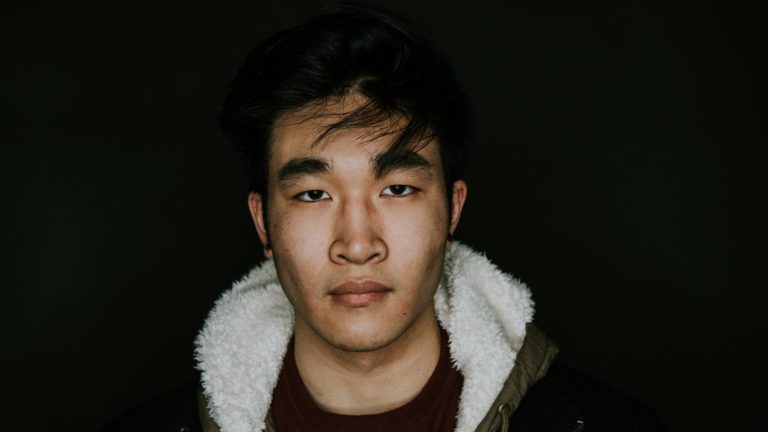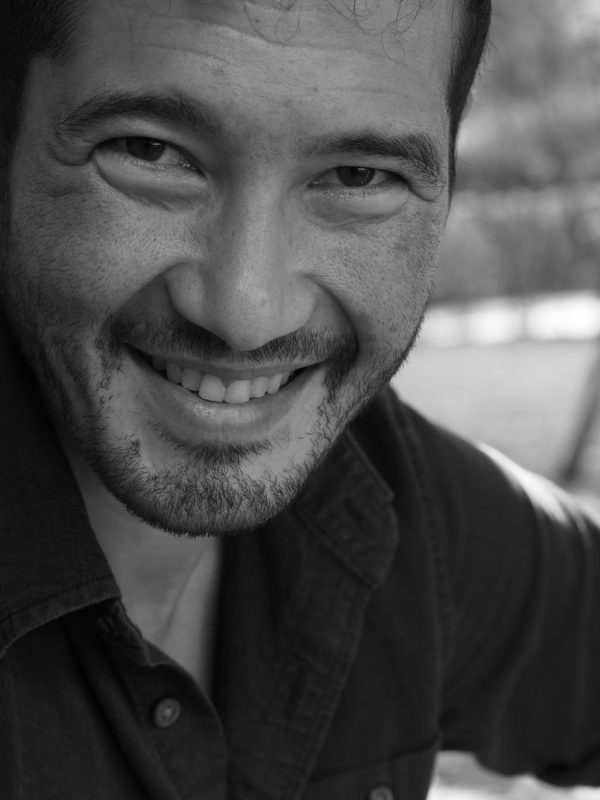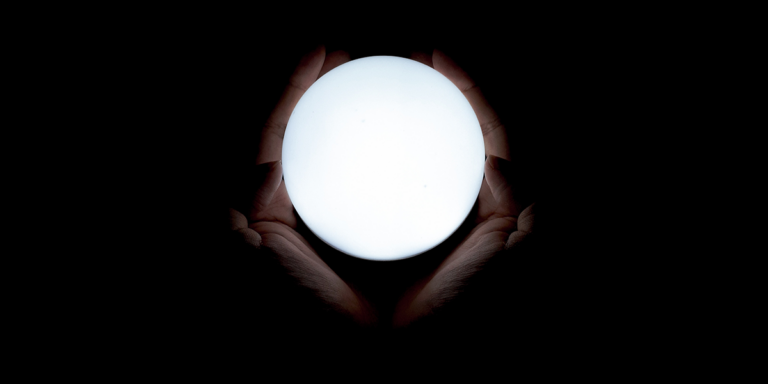
Image by Hermes Rivera/Unsplash.
Beneath the Mask of Toughness: What I Lost on the Wrestling Mat
Difference is not hard to understand if you are a person of color: It is a string of vulnerabilities to small violences. It starts early and persists, tells you where you belong in the world. Growing up in the vast whiteness of Oregon in the ’80s and ’90s, I could not escape my own face. Washington Elementary, the school I started in kindergarten, was nearly all white and fairly hard-scrabble, drawing families from the row of two-story Section 8 apartments that lined the freeway separating Eugene from the blue-collar mill town of Springfield. The two cities bled together at an overpass, and small trailer parks huddled in the shadow of the girded span, held in the spell of the whizz and thrum of passing cars. The kids from the trailer park and Section 8 apartments were easy enough to pick out, their clothes Goodwill and threadbare sometimes at the knees and elbows, their style some amalgamation of ’80s rock and pop pre-hip-hop style, short jean shorts and undershirts in the summer, something plaid or pullover in the winter. The middle-class white kids came with new and used Transformers and ThunderCats lunch boxes and slap-on bracelets and coveralls new from Gap (or old from Gap) and Hypercolor shirts and Converse high tops and all of them fluent in their parents’ and older brothers’ and sisters’ music — Queen and the Police and Madonna and Whitney and Michael.
I’d heard of none of it, my strict and spartan father insistent that my brother and I be allowed to watch only intermittent Sesame Street on our grainy, ’70s-era Toshiba. The forbidden fruit of television made my brother Jeremy and me seek it out wherever we could find it outside the house. I did become obsessed with He-Man by way of watching an episode or two at the neighbors’ house. I fell in love with his omnipotence and invulnerability, even as I despaired at my own skinny chest and short stature and hopelessly black hair and dark skin — nothing like He-Man’s golden skin and blonde mane.
To make things worse, I came to school in knee-high rubber boots with ill-fitting sweatpants that bore no corporate logos, and often I wore brightly colored tank tops and Hawaiian shirts sent by my aunties from the Islands. All of these things, combined with my shortness, the half-moon of my eyes, my brown-yellow skin, and my large vocabulary, made me impossibly weird, not right, an outsider. The kids let me know in certain ways. I remember there being one other Asian student, who avoided me like the plague; I wonder if he realized that I would never have sought him out, that already, looking at the mirror in the locked bathroom, I loathed my Asian face with its button nose, the dark hue of my skin. He got by, and because I had no choice, and perhaps because I was stubborn and had a hatred of injustice and so refused to yield to the kids who tried to terrorize me, I became a pariah. I walked the long fence during recess each day alone, staring at the ground, searching for the flash and glint of obsidian in the gravel, black treasures which I kept in my pockets and stacked in the corner of my desk. If a bully approached, I walked faster. I kept my head down and ignored the taunts — “Heyyy Shorty, Bruce Li, Bruce Lee, Hee-yah!” — I heard them clear enough and hated the kids who hollered at me almost as much as I hated myself for being vulnerable to their assault.
In sixth grade, things got worse. Today, bullying has become a concern, with public service announcements begging children to be kind and claiming that being nice is cool. But anyone who survives middle school knows the truth: Being kind or fair or doing what is right isn’t the point. All that matters is not being seen as weak. I didn’t know how to fit in: the brainy Asian kid, all four-foot-ten of my pudginess, the kid who always had the right answer to the teacher’s questions and who didn’t know anything about the things the other kids talked about, rap music and pop stars and donkey punches and BJs. I remember there were a couple of eighth grade boys who used to follow me about, take turns pretending to cough and saying “Chink” as loud as they could to avoid being caught. Those same boys taught their friends to chop their hands through the air and make noises of martial arts exclamation, “Hooo-wahhhhh- hiyah!” in my presence before breaking into hysterical laughter.
I do not blame these boys now — they had simply, simplistically absorbed the racism of the culture around them. I do not even blame them for bullying me — the impulses that drive children to harass others does not come from a drive to realize superiority, as adult aggression can. Middle school bullies are themselves just wounded children who wish to be safe from harm and so adapt in the ways immediately available to them, preying on those they perceive as weak in order to pretend they are strong. Their temporary success means they will never be safe, that they will construct themselves from a lie — and so will always be scared. I look on them with pity, though the harm they did (and do) is real.
After some months of misery, I came to a conclusion: I’d make myself so tough that nobody could say anything to me, a solution which began with joining the wrestling team. The coach of the middle school team was a working class guy named Ryan, someone’s older brother who wore a baseball cap backward and sometimes swore if he didn’t watch himself. He was taking classes at the community college and working sometimes at a hardware store, and he’d wrestled at the local high school, had qualified once for the state tournament. He didn’t really care what we did as long as we tried hard, and he made practice fun. Because of him, the guys from the low-rent apartments turned out, as did some of the preppier kids who watched Saved by the Bell and wished to be Slater. He wasn’t a yeller — not with so many of us beginners — but he did like to win, and his honesty about that (“Who wants to go out there and get their a– —BUTTS — pinned?”) convinced us that he had something to teach us.
The practices in the cafeteria were chaotic — we slid the wheeled tables to the side and rolled out the mats, all of us barely able to stand on them at once — and then we did warm-up tumbling, jogged and skipped and bear-crawled across the mat, before learning a little technique here and there. I was slow and had no strength, but I loved being on the mat, doing the drills, playing games like King of the Mat (tag, with the need to restrain the person being tagged). Surrounded by all the other boys with head gear on, also crouched in stances, crawling and grappling and whooping with joy, I felt invisible in the scrum. For a time each afternoon, I belonged there in the anarchy of tussle and play, and though the season was only a few short months, it is nearly all I remember of middle school, so vast was my unhappiness the rest of the year.
As for the strength I wished to cultivate, it came slowly, evident first in my refusal to recognize a loss even when I had been tossed through the air and slammed to the mat — I popped back to my feet and came forward again, refused to be cowed. When the season was over, I didn’t stop but instead sought out mat clubs at the local high schools, ran the bike path behind my house until I threw up my lunch and my lungs burned, bought a cheap set of weights I kept hidden in the closet because my father said I was too young to pump iron. I kept silent in class as long as I could, and when I did open my mouth, and the big words slipped out drawing scorn, I learned to face it brazenly, with the sort of defiance I was able to back up because I’d become friends now with the other boys on the wrestling team, most of them kids from the trailer park and the Section 8 housing, bigger boys who were labeled then (and doubtless would be labeled now) as bad, troubled, bound for no good.
I loved those boys for accepting me, wished to be them — I admired their ability to call out, take up space, to name the entire absurd mechanism of school “bullshit,” with its blank-faced, inept adult managers, its bells and rules and petty hierarchies privileging the kids with the right corporate logos affixed to their new clothes and gear, whose parents picked them up in the right brand of car. Those boys rode bikes and skateboards, sported jeans with holes in the knees, wore their ball caps backwards, and did what they chose after school each day — they lived in walking distance, but nobody expected them home. I told my parents I had activities and practices when I didn’t, and sometimes I went with them behind the school where they smoked ganked cigarettes, swore and laughed hard, and didn’t mind that I mostly hung out and said nothing because I didn’t even know how to swear right.
I offered them my gratitude and good will, while they gave me the safety of my body, and the pride that comes with knowing you are strong, that your hands are backed by other more furious fists. Perhaps they backed me because of what was already becoming clear, which was that through sheer force of will I was tougher on the mat than all of them. I came back from the summer before eighth grade lean and brown from running and lifting weights, in baggy jeans and layered plaid shirts. I didn’t lose a wrestling match the entire year and had high school coaches from all the local high schools recruiting me. And that was mostly that. I still felt my difference, but I belonged on the wrestling mat — and that gave me a small place in the world. The problem was that the self I made in survival was itself a mask — one forged of will and necessity, and so strong that once I put it on, I did not know how to abandon it. It took me far — to three consecutive state finals in high school, then on to a wrestling scholarship to Stanford.
After college, I thought for a long time that wrestling was something to grow out of, to get beyond — that I would find some other self, become better than before. We’re taught to wise up and get beyond, as if abandoning who we had been is a way to make ourselves whole. The New Age Namaste-ers have it more right than I’m inclined to admit — they claim we get closer to ourselves when we remember how we’ve been, locate our past life in our bodies, and affirm it.
One night in my late 20s, I ran two city blocks to reach a group of four tattooed roughnecks, likely gang-affiliated, who were assaulting a young Asian man on the streets. Because of the strong supremacist gang presence in Oregon, they may have chosen him because he was Asian and spoke poor English. I watched them pretending to cozy up to him in a line waiting for late-night food after the bars closed, and as they half-pulled him away toward the darkened blocks by the library, I knew something was wrong and began to run after them, shouting for them to stop. The young man was on the ground by the time I reached them, in a fetal position, trying to protect the soft spots on the body from the steel toes of their boots. To my surprise, the men backed away as I came up — all five-foot-five of me, in a white V-neck and sport coat — and the oldest man, who had a long, weasely face and wore a biker jacket covered in patches that declared affiliations, stepped toward me and said in a threatening voice,
“Do you know who I AM?”
“Do you know who I AM?” I said, stepping chest to chest with him.
His blue eyes ran the length of my body, thick with muscle from the climbing gym, took in my blazer and logger’s boots and unruly curly hair — evidently he did not know who I was at all, a respectable local faculty member, overdressed, a little tipsy on an August Saturday night near closing — and then he hurried down the block, pulling the others with him. I turned to find two other men, breath coming in ragged gasps, who’d run after me when they’d seen where I was bound. We went to the boy on the ground and checked his condition, eventually raised him to his feet to await paramedics. One of those men, who lived in town, became a friend after that night, so I can attest that like me, his pluck is equal parts stubbornness and idealism. The other man, six-foot-four and broad of the shoulders, I never saw again, though he told me that he’d been a wrestler, a college heavyweight, and declared that a real man wouldn’t ever let an unfair fight go uncontested. I thanked him for sprinting those two blocks to save me from getting my ass beat.
When I tell this story, it is usually for the punchline — how I faced off the four men and thought I’d scared them off by myself for a moment, not knowing of the army behind me. What I don’t dwell on is my foolishness or recklessness — the dark, lonely block I’d sprinted across, having spotted the men pulling the boy away; the ugly faces and strong bodies of the men, who’d come out that night looking for a victim to hit, how they moved like men who spent time at the MMA gym and were comfortable in a brawl; how little I cared for my own safety in the flush of anger, and with what sincerity I meant the question, “Do YOU know who I am?” I did not, then, but I never doubted my fluency in the language of violence, whose grammar is devotion, the salience of which depends only on sacrifice of blood and bone. This language, the one spoken by fighters and wrestlers, is brutal, but has honor. Called to remember it, I was an angel of justice. I would have taken every blow than let that boy bleed alone on the sidewalk. What relief, to only risk everything.
For a long time, I thought wrestling had changed me. Yet wrestling did not erase my fear — it only made my body stronger, more the equal of my heart. I wrestled to become different than I was, because I hated myself for being vulnerable and weak; I hewed to the performance of toughness to feel safe. But in my dreams, I return endlessly to the playground of Washington Elementary. I wear knee-high rubber boots, can feel the obsidian piece in the toes where I keep the best ones, my treasure stash. I walk the fences, and from a distance, I can hear the calls of the other kids, “Ching-Chong, Ching-Chong!” as one bully or another pulls his eyes slanted. Always, there is a confrontation coming, a bully to face.
But when I wake, I bear witness to that small, fierce boy with a boot full of obsidian. He was scared because he was alone and could be hurt — but he never ran. He had courage. It was all he ever needed, and I wish I’d known to love him.

